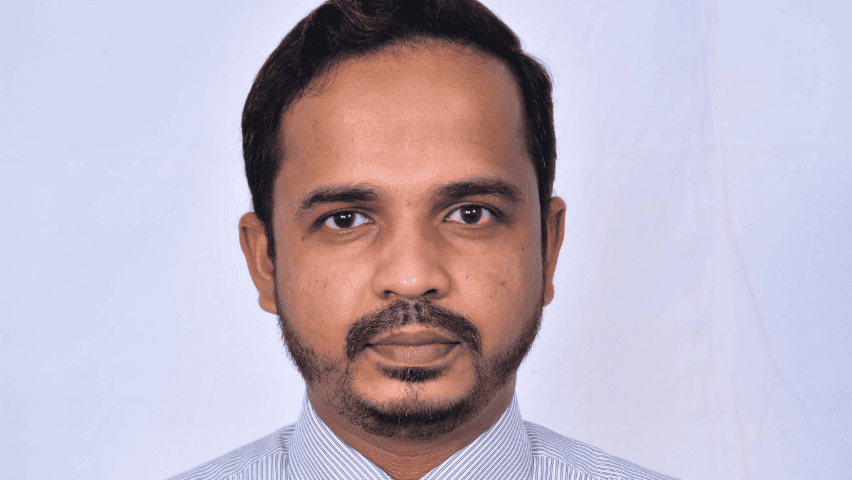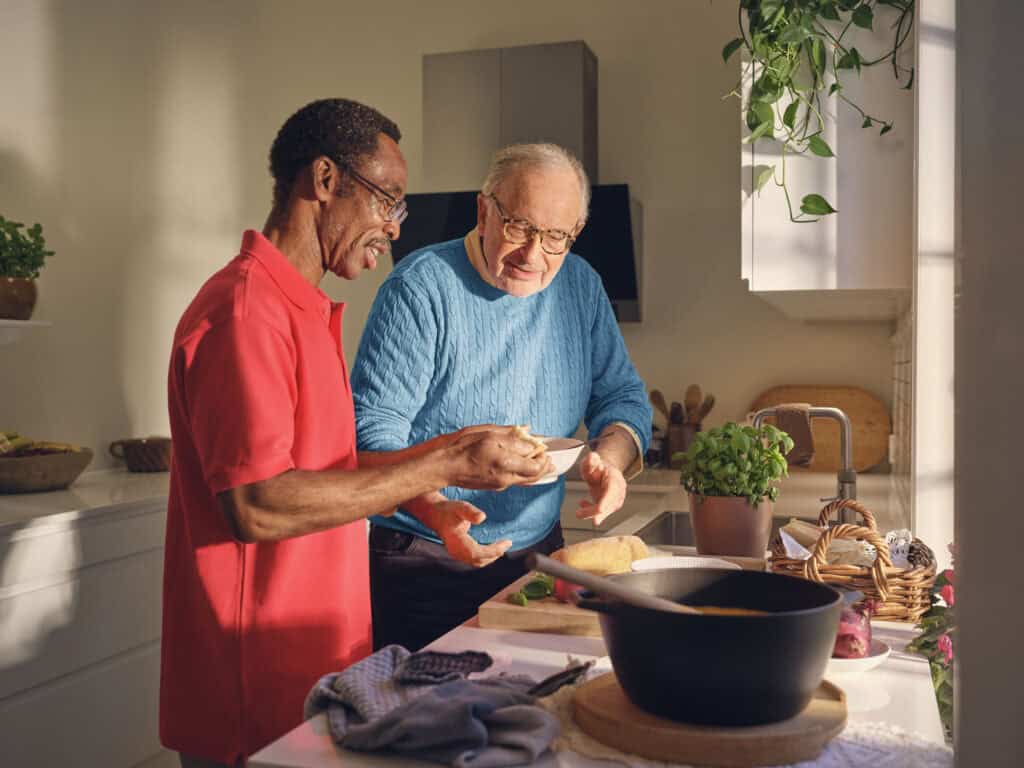Blog
31 October 2025
Nalaka Herath | Sri Lanka and Dovida Ballsbridge
As a Sri Lankan caregiver who came to Ireland, Nalaka Herath brings the warm traditions of his home country to his work as a caregiver with Dovida Ballsbridge. Here, he tells us about how back home, family is everything, and caring for others is more than a job – “It is a way to grow spiritually…

“In Sri Lankan culture, care is seen as a key duty, tied to Buddhist ideas of good deeds and karma.”
How has your culture shaped you?
Growing up in Sri Lanka, with its green fields and calm Buddhist ways, I learned from a young age to feel empathy for others. As kids, we heard stories from our parents, grandparents and incumbents in the temple about the Buddha’s teachings on compassion, like helping those in need without expecting anything back. We played with siblings while elders watched over us, and we were taught to notice how others feel by putting ourselves in their shoes. This shaped me as a person who is patient and kind. In my caregiving role, it helps me see care not just as doing tasks, but as sharing respect and happiness, like the close family bonds I grew up with.
How is care valued in Sri Lanka?
In Sri Lankan culture, care is seen as a key duty, tied to Buddhist ideas of good deeds and karma. Kids are raised to “give back” to parents for all their hard work in raising us. Elders often live with their grown children, where daughters or daughters-in-law help with daily needs, and sons help with money. This back-and-forth creates a strong family circle that lasts through generations. Caring brings joy and respect from others, and good karma for a better life ahead. Even with modern changes like urbanisation, we still value kindness and helping, like giving to those who need it.
What aspects of your culture do you bring to your role?
In my work here in Ireland, I bring parts of my culture like the Buddhist idea of “merit-making,” where kind acts for elders help both of us grow spiritually. This means I offer full support, not just physical help, but also emotional and faith-based comfort. I focus on helping clients stay independent, such as doing small tasks should they wish. From childhood, we were taught to use empathy to understand elders’ views. I listen to their stories, respect their wisdom, and imagine their feelings, like loneliness or pride, to gently guide my help. This makes my caregiving more patient, building trust and making their days brighter through real connection.
Can you share a story or memory from an important event in your culture or life?
One clear memory that shows this is from the Sinhalese New Year in April, a happy time that celebrates fresh starts with the end of harvest and the sun’s astrological shift. My extended family met at my grandparents’ ancestral home, where the air filled with the scent of boiling milk overflowing in pots (a symbol of prosperity) and the sweetness of homemade “Kiribath”, “Kewum” (Oil Cakes), “Kokis” (a fried treat) and many more traditional sweets. Elders, who we see as full of knowledge, put herbal oils on our heads as a blessing for health, whispering prayers for well-being.
My grandmother guided us in making sweets, telling old tales while we played games like “Olinda Keliya”, “Pancha Demima”, “Keta Geseema”, and more. The best thing is that we all play together without any age limits while laughing and feeling part of it all. Also, we went to the temple in “Nonagathya”, it’s an auspicious time to light lamps and share merit through acts like “Jīva Danē”, honouring living elders and showing our family care.
This wasn’t just fun, it was a living lesson in care, reminding us that family unity and elder respect sustain us through life’s cycles, much like the compassionate support I now offer in Dovida.


